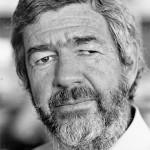By Joe Connlley, Seattle PI
Major agribusiness companies and grocery chains appear set on a “Shock and Awe” approach to defeating Initiative 522 on Washington’s November ballot, and have poured nearly $9 million into the cause over the last two days.
The latest big bucks include $3.2 million from Dupont, on top of $171,281 previously given; a $562,000 pledge from Dow Agrisciences and a $500,000 pledge from BASF Plant Science. Montsanto made the biggest investment earlier in the week with a $4.5 million contribution to the No-on-522 campaign.
I-522 would put labeling requirements on genetically manufactured foods and seeds offered for sale in Washington State. A similar ballot measure in California set off a massive advertising blitz: Major grocery chains and agribusiness interests spent $46 million and narrowly defeated it.
Supporters of the initiative have put together a $3.5 million war chest. About $19 million was spent on behalf of the California measure.

The No-on-522 campaign has retained services of Beverly Hills, Calif.-based Winner & Mandabach, the nation’s most experienced consulting firm at promoting and fighting initiatives. Winner & Mandabach worked in 2012 for opponents of the California labeling measure.
Winner & Mandabach was formerly Winner Wagner & Mandabach, and gained initial fame (or infamy if you were on the opposite side) in the 1980′s for successful strategies that defeated anti-nuclear power initiatives in Western states.
Its first setback came in Washington with the so-called “WPPSS initiative.” I-394, put on the ballot in 1981, was aimed at curbing soaring costs of the Washington Public Power Supply System’s nuclear program, which eventually left four abandoned, partially built reactors and caused the biggest municipal bond default in American history.
I-394 required utilities to get voter approval before issuing new bonds to pay for WPPSS’ nuclear plants, whose total costs had reached $23.9 billion.
Major brokerage firms and nuclear contractors spent $1.2 million to beat it, compared to just $200,000 for supporters. But backers aired radio ads produced by famous New York adman Tony Schwartz, creator of the famous “Daisy” ad that implied that Republican presidential candidate Barry Goldwater might set off a nuclear war.
I-394 rolled up 58 percent of the vote, although courts later threw it out. Election night featured a memorable, not-entirely-friendly encounter at “No” headquarters between firm principal Chuck Winner and Seattle Post-Intelligencer columnist Shelby Scates.
The cost to corporations of ballot campaigns has since gone up. The American Beverage Assn., in 2010, spent $16.9 million to persuade Washington voters to roll back a modest soda pop tax, enacted by the Legislature to fund education. Costco topped that with its successful campaign to end the state’s monopoly on retail liquor sales.
With its latest influx of cash — and nearly two months until election day — the No-on-522 campaign may challenge previous spending records.
